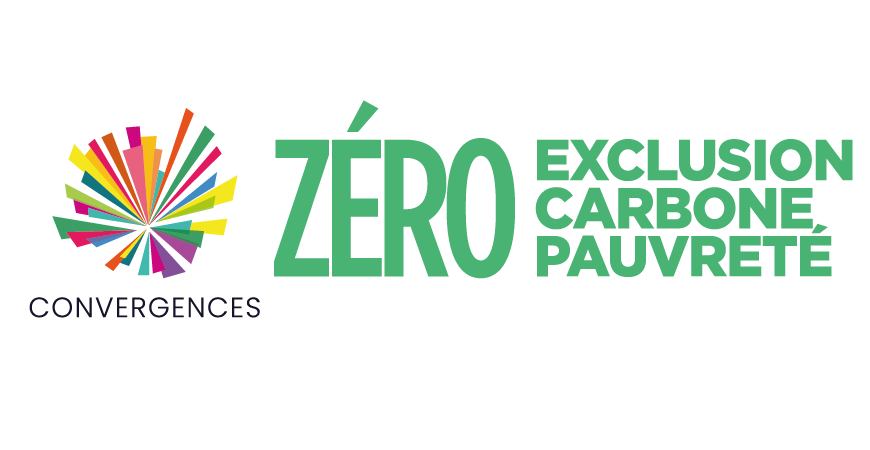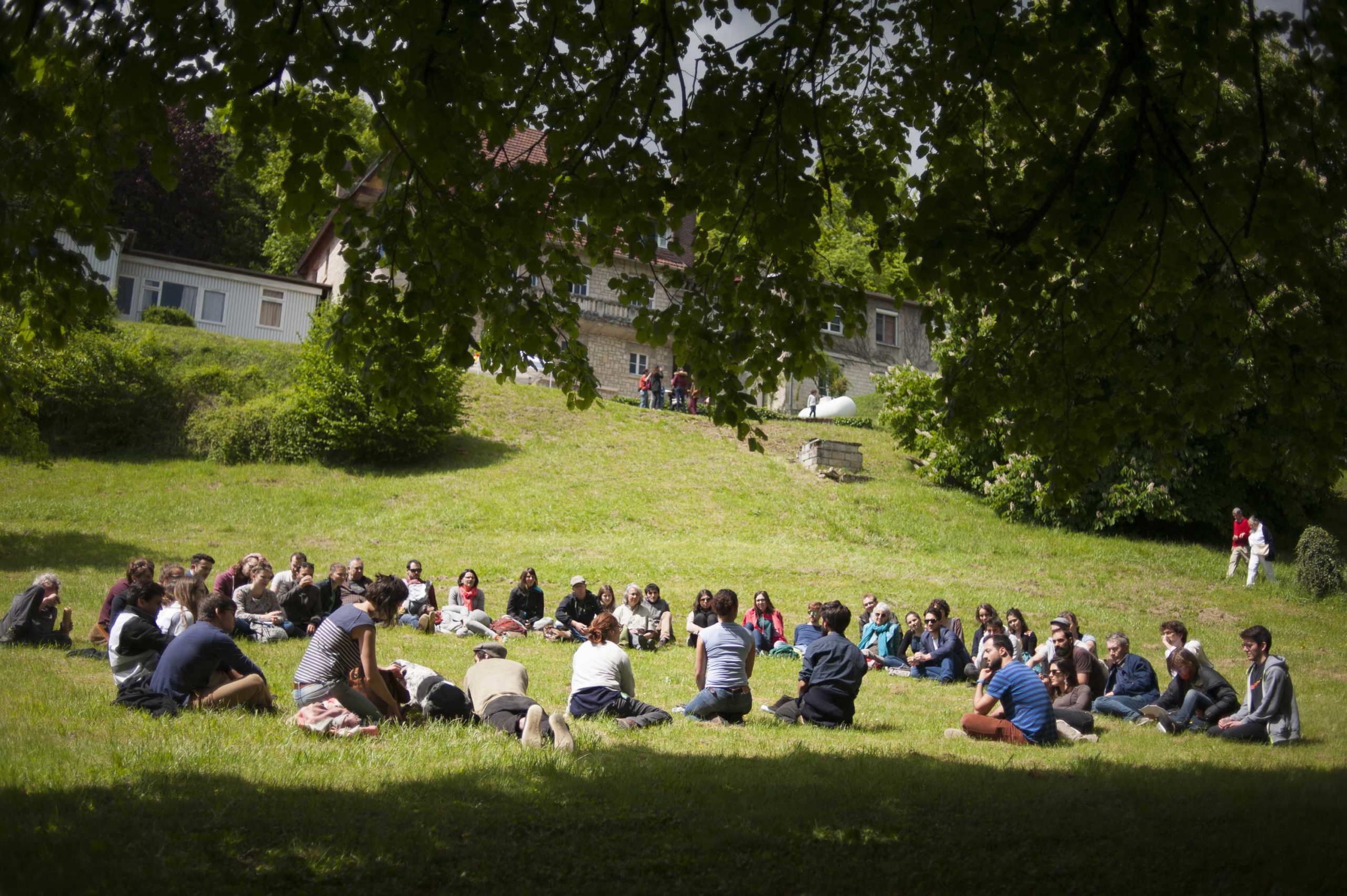
Autrêches, a village nestled in the hollow of the Aisne and Oise valleys, is home to the Hermitage, a third place of rural and citizen innovation. With its 21 buildings and 31 hectares of land, forests and farmland, the Hermitage welcomes agro-ecologists, students, community managers, hackers, entrepreneurs and citizens who are reinventing another model of development and coexistence. The wide range of profiles and disciplines represented responds to a common ambition: to contribute at its own scale, and according to its skills, to reinvent local and eco-responsible initiatives of the future.
The third place is a space that we frequent in addition to our place of residence and work. Its purpose is to decompartmentalize sectors of activity and territories, by seeking to integrate them into virtuous dynamics at the service of culture, the economy, and democratic renewal. A true space for “doing things together”, the third place strives to involve the population in the reclamation of its space, through activities to which everyone is invited.
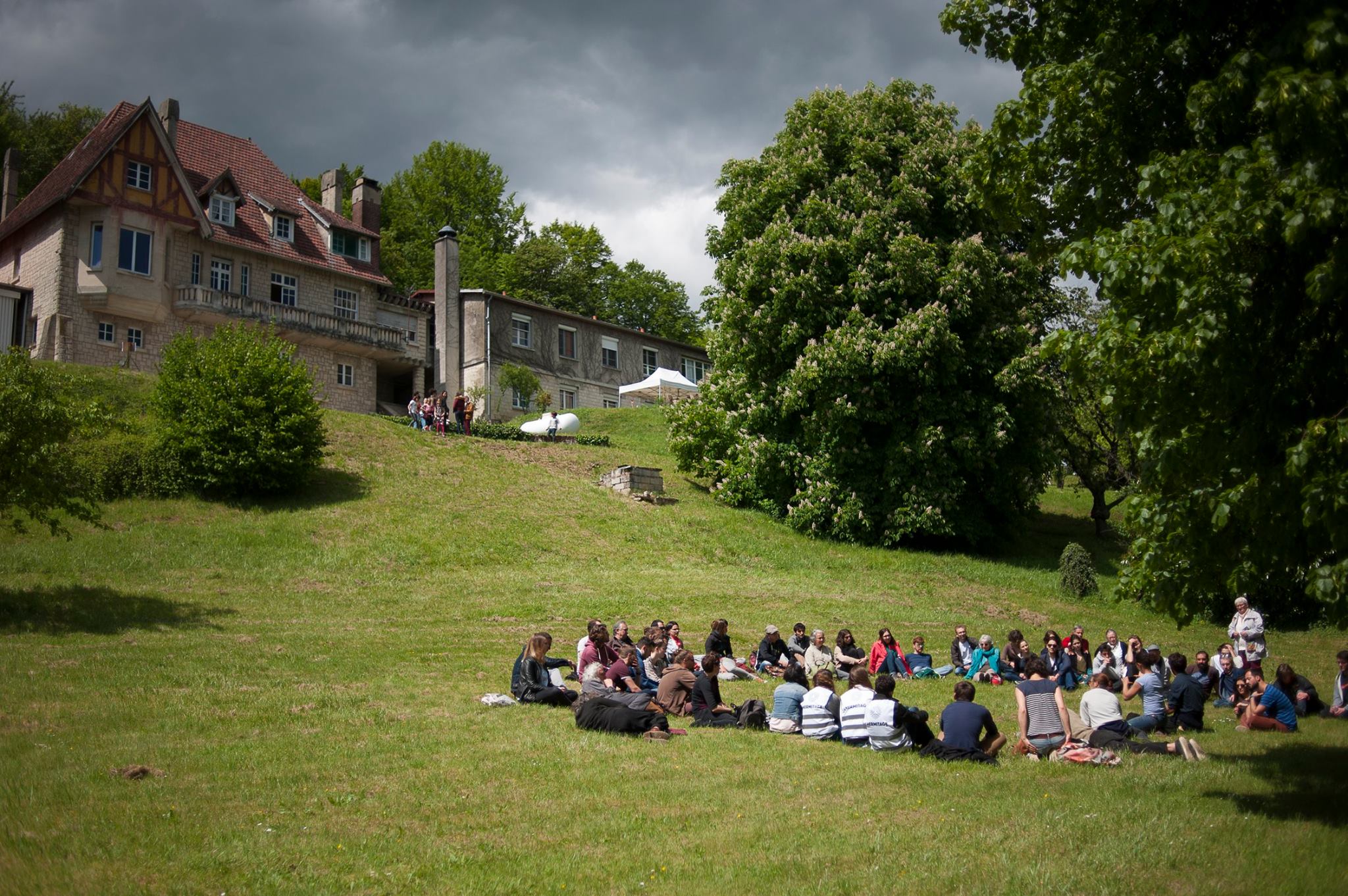
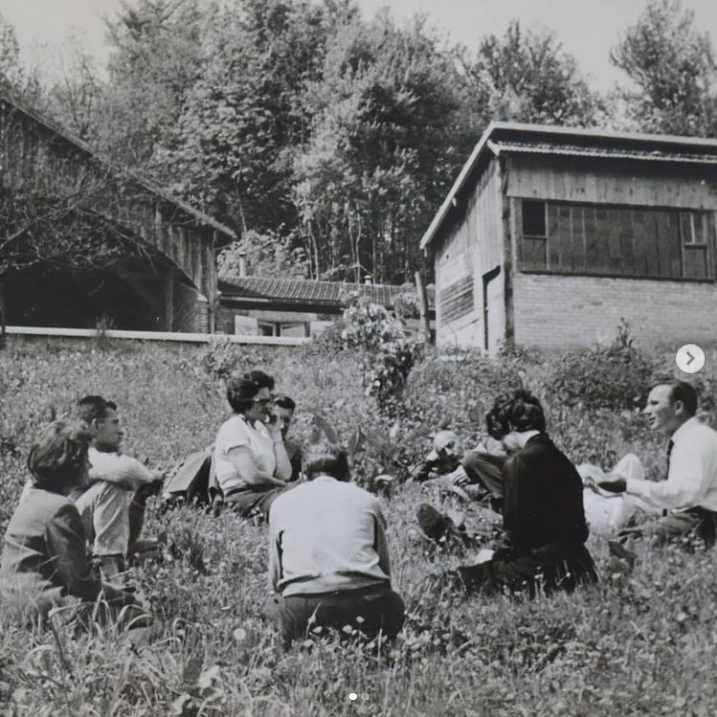
However, the Hermitage was not always the third place we know today. Since the 1950s, it has successively served as a place of welcome, a space for social experimentation, and then as the headquarters of the International Center for Development and Research, before being recovered in 2018 to become this converted space, dedicated to the contemporary issues of ecological, economic, technological and societal transitions of territories. This historical anchorage is also echoed by a strong financial anchorage. Indeed, in order to ensure the resilience and revaluation of decommissioned land, the buildings have all been purchased through a cooperative real estate operator, allowing the renovation and rental of certain buildings to the various entities present
“Here, if we are able to redesign the 21st century as we need it, that is in the general interest, for both the planet and the local regions – there are market gardening lands and buildings that need renovation – and create a place where freedom is a reality, then we will have given meaning to the Hermitage,” explains Jean Karinthi, co-founder of the Hermitage. The particularity of rural third places lies in the diversity of activities and profiles that intermingle there. This feature becomes clear when we look at all the projects and activities that take place there. The Hermitage is in fact composed of four “tribes”, each specialized in a given field of activity.
Thus, under the banner of agroecology, various activities related to agricultural transition, sustainable food and local distribution networks can be found. For example, the Jardins de l’Hermitage, a market gardening and organic agriculture farm that sells fruits and vegetables through an AMAP (Association pour le Maintien d’une Agriculture Paysanne). Another category is that of energy transition, where the focus is on achieving energy sobriety in buildings. The Hermitage is, in this respect, a textbook case, as work has been done to improve insulation and reduce its energy expenses. “Through experimentation, the Hermitage can become a major Zero Carbon demonstrator” says Mathieu Karinthi, who also co-founded the Hermitage.
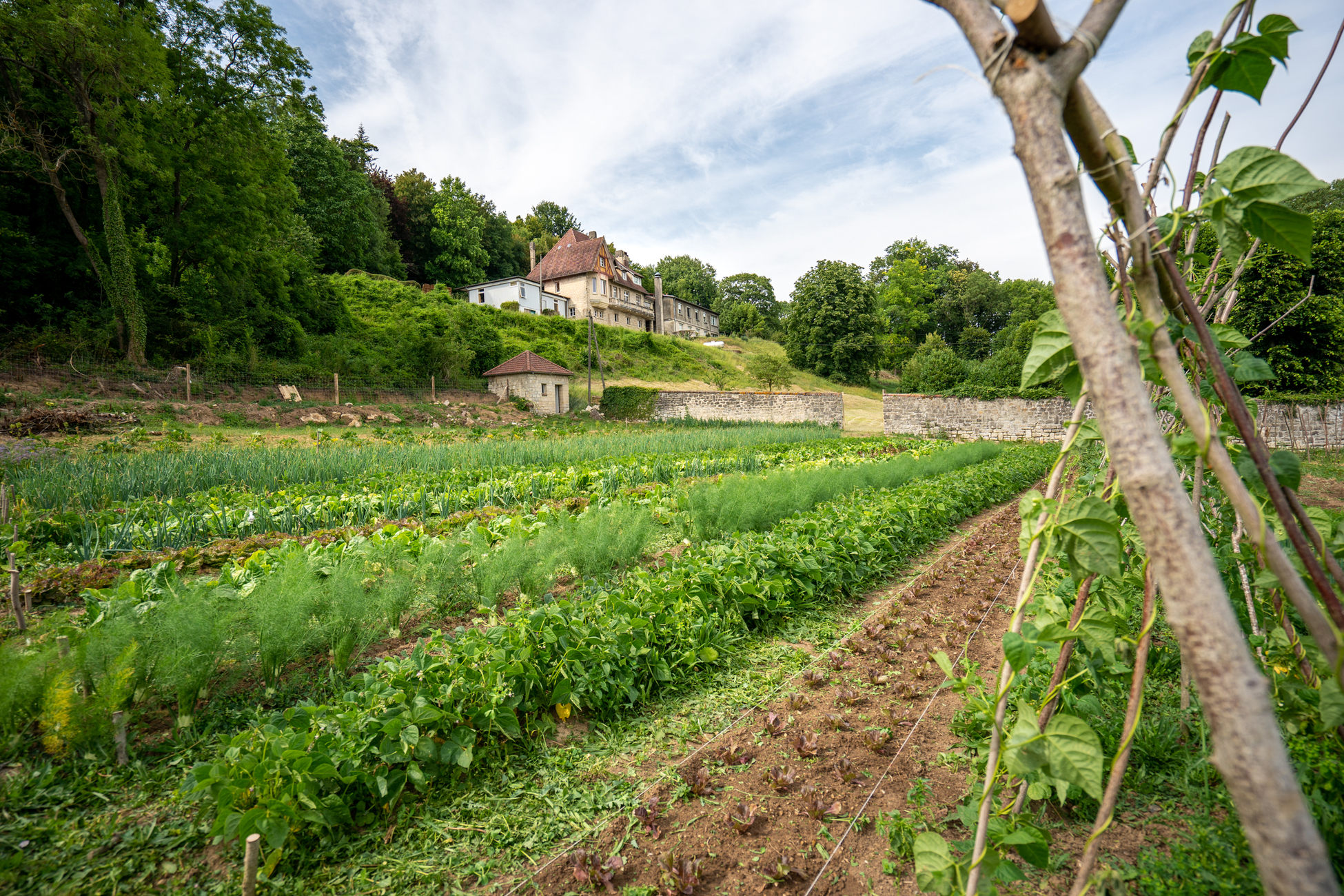
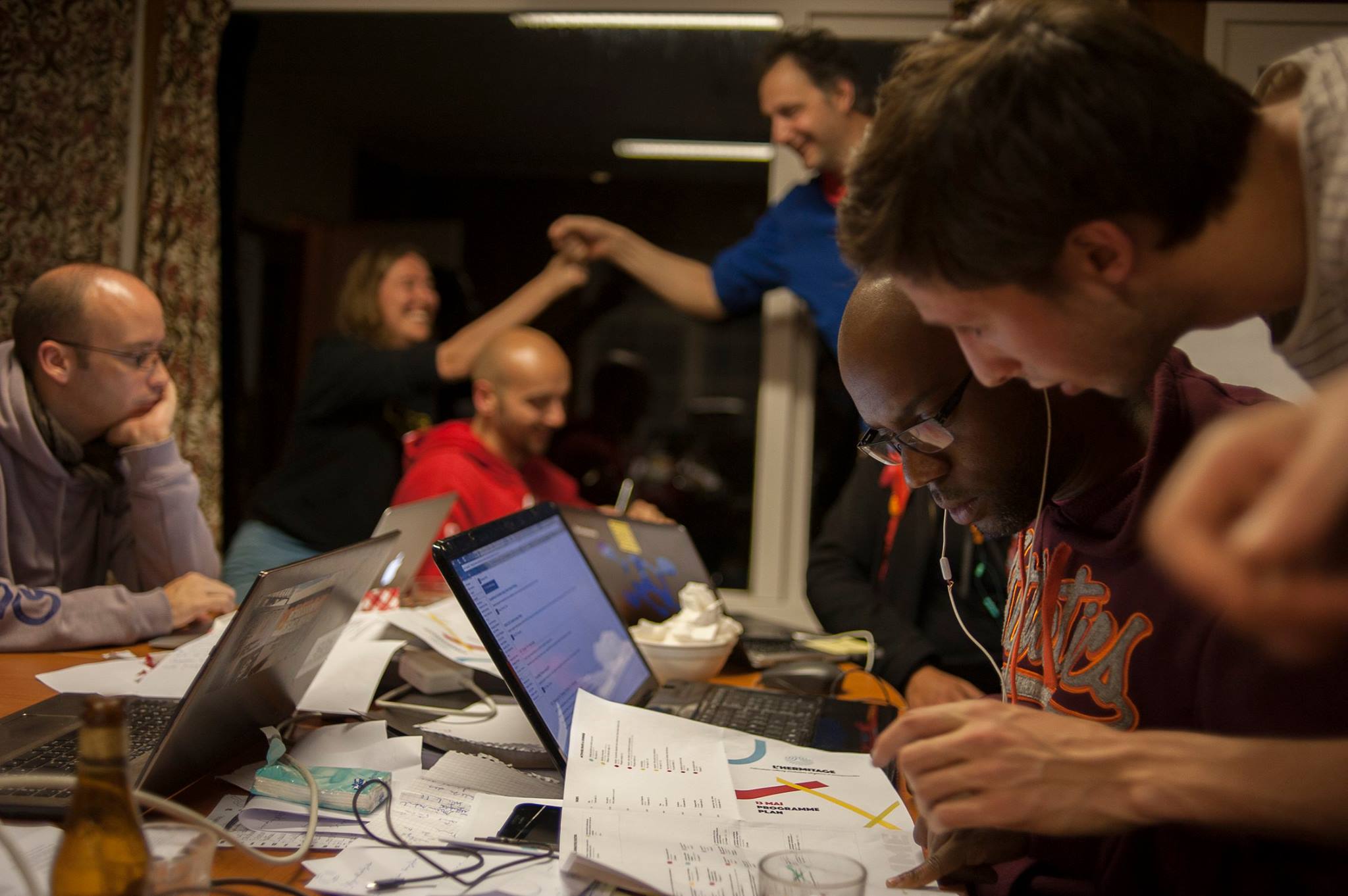
Then comes the “citizen hacking” tribe, which puts forward the stakes of new technologies in the service of the general interest and the reduction of the digital divide, and whose activities are organized around Fabri’commun, a collective of makers, designers, developers, manufacturers and researchers wishing to work for the common good by facilitating autonomy and reactivity on a local scale in the field of new technologies. Finally, there is the “Living Together” family, whose ambition is mainly supported by an eventful Café-Cantine, a space for conviviality, meetings and entertainment for all, serving as a permanent home for associations from the territory who come to work there.
For the past 4 years, the Hermitage has been leading the way towards the development of tomorrow, an area-based developement responding concretely to the needs of the inhabitants. It is an inspiring model for the 3Zero, which also relies on the local level to be a driving force in the emergence of inclusive and environmentally friendly initiatives.
L’Hermitage in a few figures
12 structuring projects with an economic vocation supported
1,5€ million already invested in Autrêches, at the initiative of a citizen’s collective
150 one-time volunteers to support projects
30 full-time jobs on site, with another 20 created by 2023
14 third places supported in France
